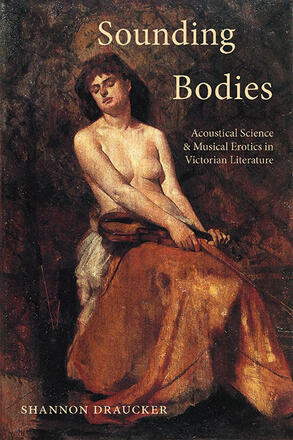
Sounding Bodies
Acoustical Science and Musical Erotics in Victorian Literature
Shows how nineteenth-century discoveries in acoustical science shaped Victorian literary representations of gender, sexuality, and intimacy.
Description
Can the concert hall be as erotic as the bedroom? Many Victorian writers believed so. In the mid-nineteenth century, acoustical scientists such as Hermann von Helmholtz and John Tyndall described music as a set of physical vibrations that tickled the ear, excited the nerves, and precipitated muscular convulsions. In turn, writers—from canonical figures such as George Eliot and Thomas Hardy, to New Women novelists like Sarah Grand and Bertha Thomas, to anonymous authors of underground pornography—depicted bodily sensations and experiences in unusually explicit ways. These writers used scenes of music listening and performance to intervene in urgent conversations about gender and sexuality and explore issues of agency, pleasure, violence, desire, and kinship. Sounding Bodies shows how both classical music and Victorian literature, while often considered bastions of conservatism and repression, represented powerful sites for feminist and queer politics.
Shannon Draucker is Assistant Professor of English at Siena College.
Reviews
"Sounding Bodies departs from the longstanding critical tradition of interpreting the erotics of music and musicianship in Victorian literature metaphorically. Instead, this book takes them literally, making a case for the sociopolitical importance of centralizing the embodied experiences of musical playing and listening in the world of contemporary classical music. I was impressed from start to finish by the author’s mastery of Victorian literature, the history of acoustical science, and contemporary musicology, especially the insights of queer and feminist musicology." — Dustin Friedman, author of Before Queer Theory: Victorian Aestheticism and the Self
"Eminently readable, Sounding Bodies shakes up the entrenched notion that the Victorians were stuffy and afraid of bodies. Reveling in the pleasures and reparative nature of music, while also reflecting on music's dark side, the book is for anyone interested in expansive explorations of eroticism." — Duc Dau, author of Sex, Celibacy, and Deviance: The Victorians and the Song of Songs